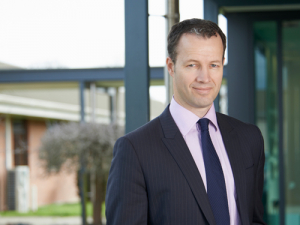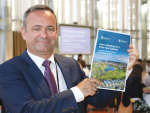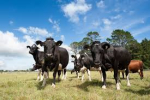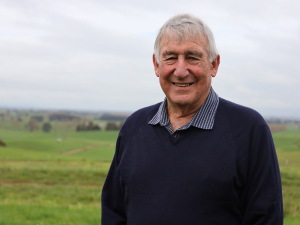Figures released at DairyNZ annual general meeting (AGM) in Ashburton shows the 2015/16 dairy season was the most challenging year yet for dairy farmers.
The 2015/16 milk price of $3.90/kgMS was the lowest in more than a decade and impacted farmers who last season were, on average, operating at a break-even cost of $5.25/kg milksolids.
DairyNZ board chair Michael Spaans says despite an obvious shortfall in farm income, last season farmers made positive steps in reducing their costs of production.
“Our data shows farmers have become more efficient and fine-tuned their farm management – so much so, that in August we revised the average farm’s break-even cost down to $5.05/kg milksolids for 2016/17,” says Spaans, speaking to an audience in Ashburton.
“This is a rare positive from a period of low milk prices and something farmers should be immensely proud of. Farmers’ abilities to sharpen the pencil and remain focused is key to maintaining our industry’s international competitiveness.”
The 2015/16 challenges were compounded by the low milk price in 2014/15. With no significant retrospective payments from the previous season, many farmers in 2015/16 increased debt to cover costs.
The previous 2014/15 season had been somewhat buffered by the $8.40/kgMS price of 2013/14.
Nationally, dairy farmers produced 1.862 billion kgMS, worth $8 billion in 2015/16.
The industry’s milk production benefited the New Zealand economy by $12.2 billion from dairy exports in 2015/16 and provided around 35,000 full-time jobs on-farm and a further 14,500 jobs in milk processing and wholesaling.
DairyNZ chief executive Tim Mackle says 2015/16 was another busy year for DairyNZ, which makes a range of industry investments through the $67 million levy, plus additional government and commercial funding.
“Investing farmers’ money into a wide range of programmes is designed to deliver direct benefits for farmers and the industry as a whole,” says Mackle.
“While each year we focus on supporting farmers through immediate issues, such as managing the low milk price, we also maintain our long-term work in such areas as research, environmental management and our workforce.”
This coming year, $16m will be invested into each of the three key areas – research; farm profit; biosecurity and product integrity. Environmental work will also receive $12m funding.











